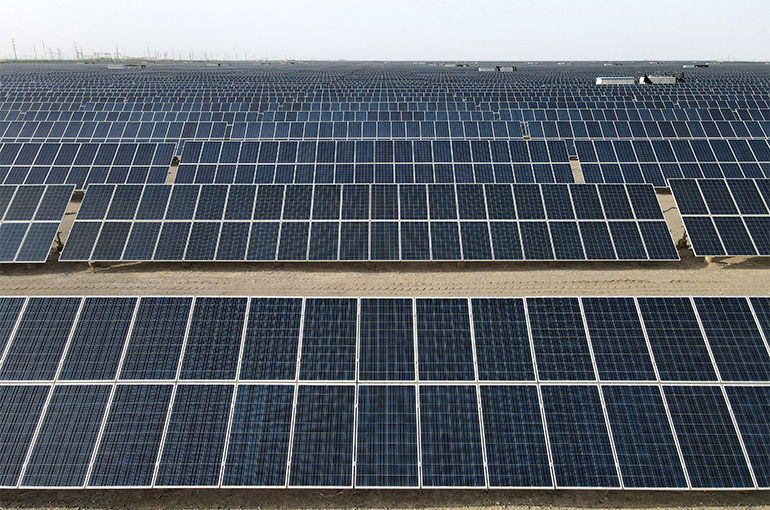 EU Subsidizes Homegrown Green Transition, Chinese Center Says After EV Tariff Hikes
EU Subsidizes Homegrown Green Transition, Chinese Center Says After EV Tariff Hikes(Yicai) Nov. 11 -- Despite regulations prohibiting state aid, the European Union is actively subsidizing the region’s green transition, a research center at the China University of Political Science and Law reported following the EU's imposition of anti-subsidy duties on Chinese-made electric vehicles.
The EU has been providing direct grants, tax incentives, low-interest loans, loan guarantees, and price subsidies in recent years to accelerate the development of its new-energy industries, according to a report released by an international trade research center under the Beijing-based university.
The report comes on the heels of hiked tariffs for Chinese-made cars. On Oct. 30, the EU imposed up to 35.3 percent countervailing duties on battery electric vehicles imported from China, citing unfair subsidy practices.
The EU has established several supportive funds to offer direct grants. In addition, it allocates significant funding for many of these new-energy projects through EU funds and state aid, according to the report. For instance, in 2022, the region provided up to EUR25 billion (USD26.8 billion) in subsidies to the solar power industry through various funds.
The EU has formed more than 10 green transition funds, including the Recovery and Resilience Fund, Horizon Europe, and the Innovation Fund. Among them, the RRF fosters green and digital transformation through grants and concessional loans. By April, the fund had distributed EUR87.9 billion to support sustainable mobility projects, according to the European Commission.
One of the target industries is battery manufacturing. Horizon Europe provided about EUR873 million (USD935.2 million) in grants to almost 310 research and development projects in the battery industry from 2014 to 2020. Similarly, the Innovation Fund allocated about EUR161 million in grants for eight projects in the same field from 2021 to 2022, based on data disclosed by the European Court of Auditors.
EU funds have contributed at least EUR22 billion in grants to the EV industry. These funds cover R&D, manufacturing, charging infrastructure, and consumer adoption of EVs. For example, in 2021, the RRF granted Germany EUR5.5 billion (USD5.9 billion) to support private consumption of EVs and charging infrastructure. Last year, an additional EUR2.8 billion was allocated to German citizens for the purchase of zero-emission vehicles, according to official sources.
Editor: Emmi Laine